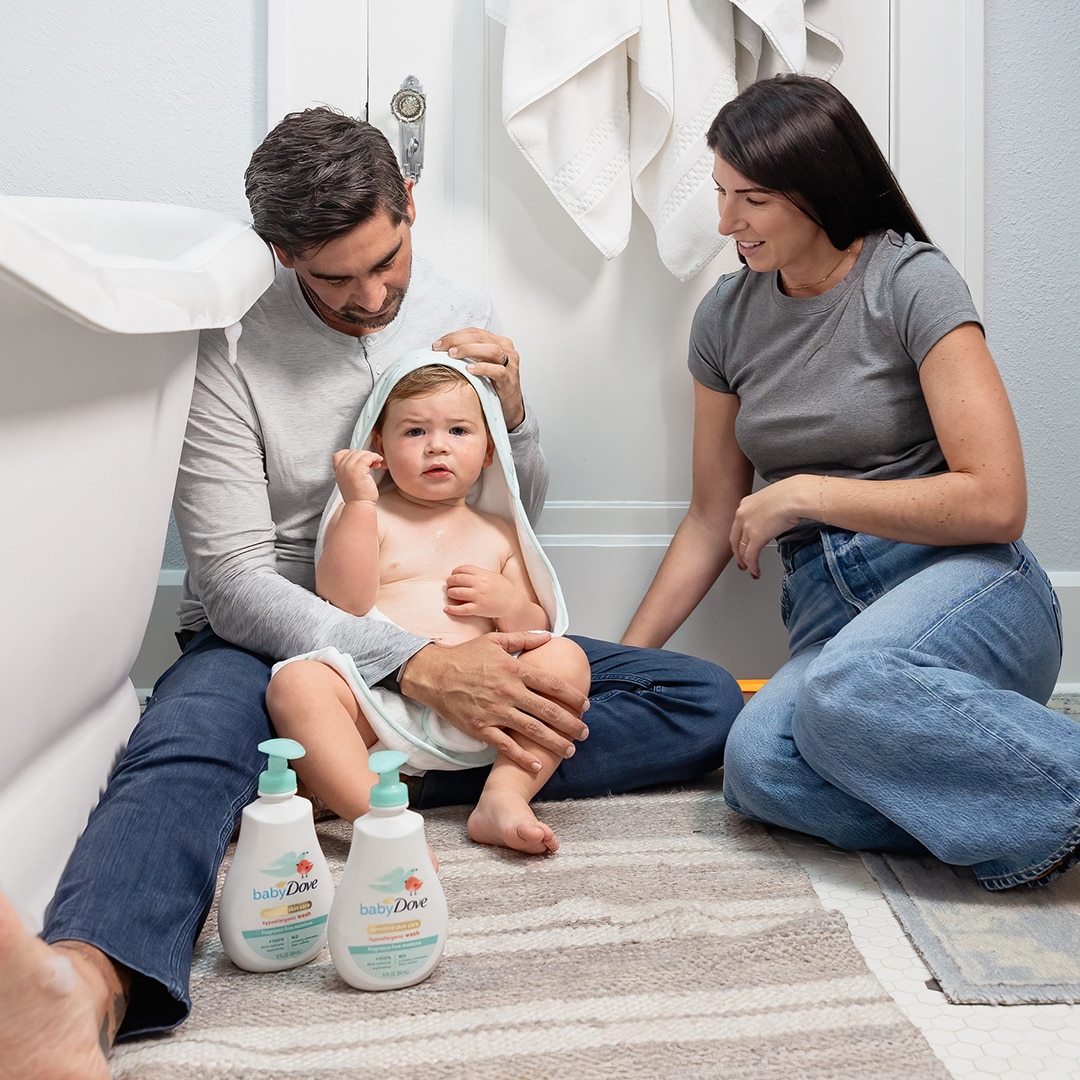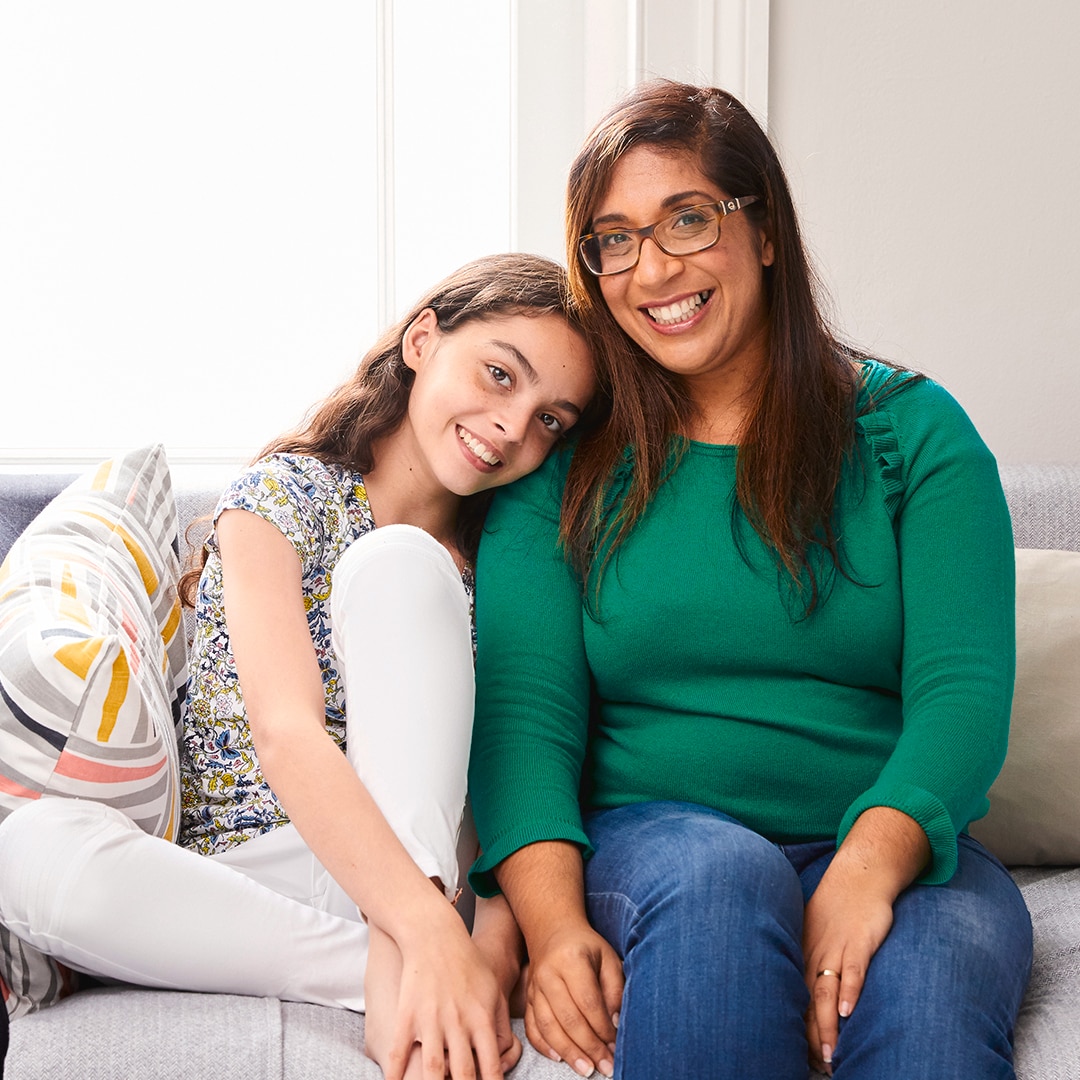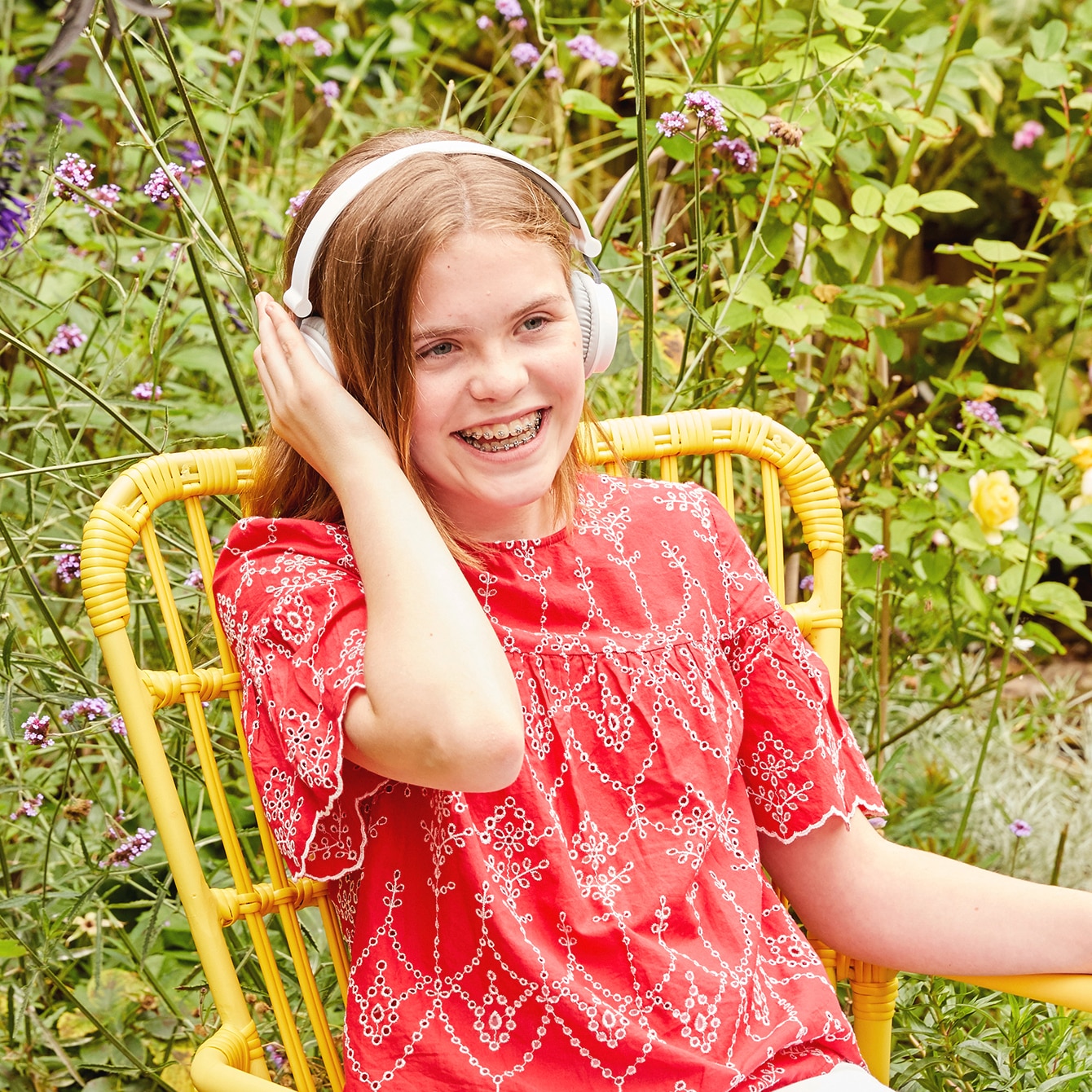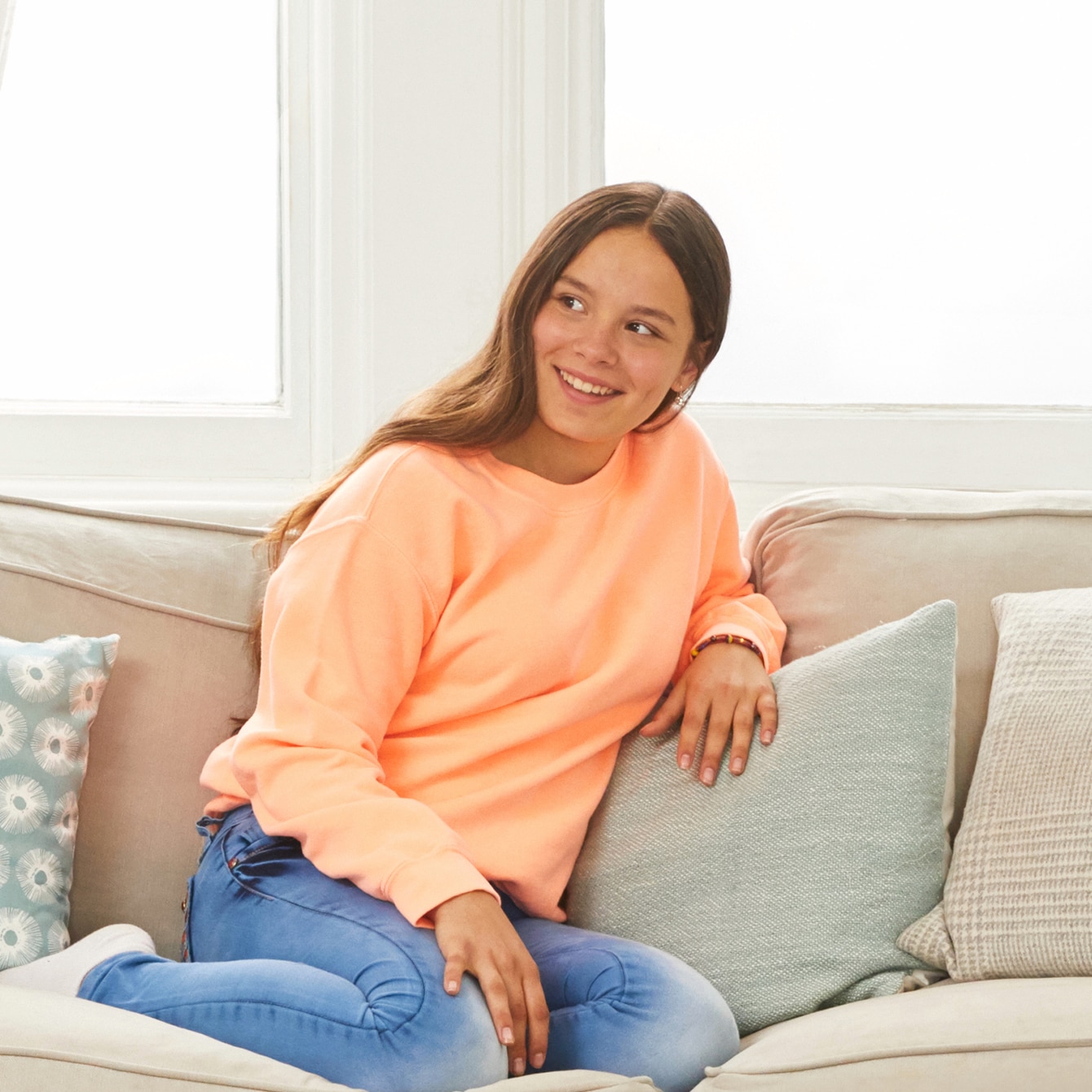Let’s start with something positive: scientists now think it’s how children use it – rather than how much – that actually influences whether they have a healthy relationship with social media. Which is to say, even if you worry your child is glued to their phone, by supporting them to use social media in a balanced way, you can help them have a more positive experience and feel more equipped to handle any difficulties they might encounter. Here’s how
Remind your child that there is no such thing as perfect. Unrealistic beauty standards online perpetuate the myth that perfection is attainable – no wonder Dove research found that 1 in 2 girls say toxic beauty advice causes low self esteem, and that a quarter of girls don’t think they look good enough without photo editing. Learn how social media filters are impacting body confidence and image to help them understand that behind an influencer’s picture there is likely some element of image manipulation.
Next, help them discover ways to feel more in control over what they consume. This might mean getting familiar with the apps they use yourself, to know their different functions. Teach your child how to hide or block content that makes them feel bad, and how to report content that is inappropriate. Make them feel empowered to unfollow accounts too.
Explore with them why social media and social relationships are about connection. Rather than passively consuming other people’s lives and sinking into the comparison trap, explain to them that social media can be a wonderful place to learn from others and make friends.
Help them seek out accounts of people who have similar hobbies or interests as them, such as music, sports or activism, then encourage them to use it more purposefully and interact, rather than simply scrolling. This relates to the content your child posts too. Discuss with them whether they feel pressure to post selfies, then help them think more creatively about what to post instead; things that reflect their personality and are less about their looks, perhaps.
Be their role model. Your own relationship with social media matters here too. Take note of the ways it impacts your wellbeing (when does it make you feel good? When does it make you feel bad?) and try to moderate your own usage. Be sure to speak with them openly about this process as you go through it, too.
Suggest a screen-free activity you can do together, such as crafts, baking or exercise. The benefits of this are twofold – not only does it give them some social media-free time, but it creates space for something called sideways listening. This is where the lack of intense eye contact can create a more relaxed space for your child to talk about anything that might be worrying them. With Dove research finding that 4 out of 5 girls want their parents to talk to them about how to manage toxic beauty advice online, while it can sometimes feel hard to start conversations about social media, it’s vital that you do.








